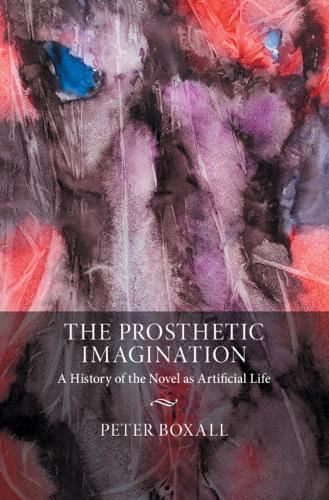Full Product Details
Author: Peter Boxall (University of Sussex)
Publisher: Cambridge University Press
Imprint: Cambridge University Press
Dimensions:
Width: 15.90cm
, Height: 2.70cm
, Length: 23.60cm
Weight: 0.740kg
ISBN: 9781108836487
ISBN 10: 1108836488
Pages: 422
Publication Date: 03 September 2020
Audience:
Professional and scholarly
,
Professional & Vocational
Format: Hardback
Publisher's Status: Active
Availability: Available To Order

We have confirmation that this item is in stock with the supplier. It will be ordered in for you and dispatched immediately.
Reviews
'The Prosthetic Imagination is at once a majestic work of literary history and a formidable work of conceptual criticism. Through readings that display striking range and agility, Peter Boxall reconstructs the formal and historical development of the novel as the development of artificial life. Moving from More to Beckett, from Cervantes to Bolano, this book delineates a remarkable genealogy for the interrelation of prosthetics and novelistic aesthetics, showing how fiction's philosophical entanglements with the body have informed its conditions of possibility.' David James, University of Birmingham 'This is a dazzling study of the prosthetic imagination in prose fiction, the logic which does not refer to the world but produces it. Boxall's thesis entails an entire re-reading of the novel's history as well as the abandonment of realist criteria. Biotechnology and the idea of replacement, the 'seam' that connects imagination to its material extension, shape the novel from the start, from More to Modernism, from Cervantes to Eliot. The wonderful juxtapositions, More and Asimov, Hobbes and Timothy Clark, Goethe and Kleist, Dickens and Agambon, constantly surprise. Central to this study is a brilliant reading of the hand and its social and biological roles. Just as certainly as the prosthetic affirms the novel's artificial life, so it brings death into the fictional world.' Isobel Armstrong, University of London 'The Prosthetic Imagination is a major book: it does nothing less than to rewrite Erich Auerbach's Mimesis as an epic struggle between consciousness that materializes as information and material that resists that transformation. By thus reframing the history of the novel in terms of the changing relation between prothesis and mimesis, this account does what none other has - which is to reveal, in an extraordinary range of novels, the dialectical potential that pushes past the juncture where thought materializes in and as the world. Boxall has convinced me that we are seeing now nothing less than a shift from material embodiment to information as the basis of 'shared being' - a shift which requires 'a different universe of thought'.' Nancy Armstrong, Duke University
The Prosthetic Imagination is at once a majestic work of literary history and a formidable work of conceptual criticism. Through readings that display striking range and agility, Peter Boxall reconstructs the formal and historical development of the novel as the development of artificial life. Moving from More to Beckett, from Cervantes to Bolano, this book delineates a remarkable genealogy for the interrelation of prosthetics and novelistic aesthetics, showing how fiction's philosophical entanglements with the body have informed its conditions of possibility. David James, University of Birmingham This is a dazzling study of the prosthetic imagination in prose fiction, the logic which does not refer to the world but produces it. Boxall's thesis entails an entire re-reading of the novel's history as well as the abandonment of realist criteria. Biotechnology and the idea of replacement, the 'seam' that connects imagination to its material extension, shape the novel from the start, from More to Modernism, from Cervantes to Eliot. The wonderful juxtapositions, More and Asimov, Hobbes and Timothy Clark, Goethe and Kleist, Dickens and Agambon, constantly surprise. Central to this study is a brilliant reading of the hand and its social and biological roles. Just as certainly as the prosthetic affirms the novel's artificial life, so it brings death into the fictional world. Isobel Armstrong , University of London
Author Information
Peter Boxall is Professor of English at the University of Sussex. His books include Don DeLillo: The Possibility of Fiction (2006), Since Beckett: Contemporary Writing in the Wake of Modernism (2009), Twenty-First-Century Fiction: A Critical Introduction (2013), and The Value of the Novel (2015). He has edited a number of collections, including Thinking Poetry (edited with Peter Nicholls, 2013) and Beckett/Aesthetics/Politics, and an edition of Beckett's novel Malone Dies. He is co-editor, with Bryan Cheyette, of volume 7 of the Oxford History of the Novel in English (2016), and editor of The Cambridge Companion to British Fiction, 1980–2018 (2019), and of the bestselling 1001 Books You Must Read before You Die (2012). He is also the editor of Textual Practice, and the series editor of Cambridge Studies in Twenty-First-Century Literature and Culture.




